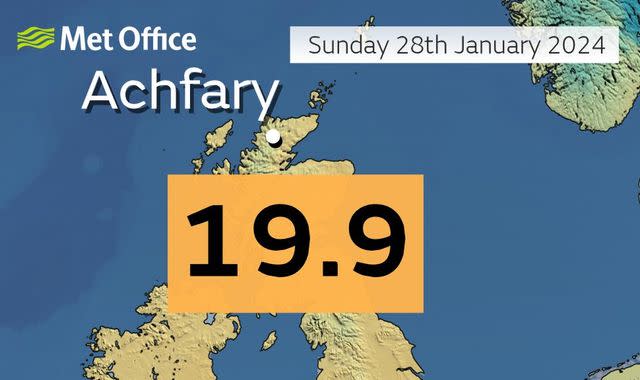UK weather: Warmest ever January temperature record rises to nearly 20C

A provisional new UK maximum temperature record for January of 19.9C has been set in northwest Scotland, the Met Office has said.
In a statement, the weather service said a manual reading at Achfary on Sunday gave the potential new record.
The figure exceeds that from an automated reading of 19.6C reported on Sunday at Kinlochewe.
It also beats previous historic January highs of 18.3C set at Inchmarlo and Aboyne in 2003 and Aber in 1958 and 1971.
Southern winds have brought milder air from Africa across the UK, which have triggered higher-than-normal temperatures, meteorologist Becky Mitchell told Sky News.
The winds are also bringing a Saharan dust cloud to parts of the UK, which may result in red dust settling on streets and cars in the coming hours.
A wildfire was also reported yesterday in Lochinver in the Scottish Highlands.
It is understood the fire was caused by a broken powerline damaged by strong winds.
Why are the Scottish Highlands so warm?
Part of the reason for the temperature spike is what's called the foehn effect - this is the movement of air from the wet and cold side of a mountain to warmer and drier conditions on the other side.
When a distant wind hits mountainous parts of the country, the air can sometimes be pushed up to the top - with the air losing its moisture and becoming drier as it rises.
By the time it comes down on the other side of the hill, the relatively dry air warms as it descends.
The phenomenon is most common in mountainous regions.
This can create a contrast in conditions in Scotland, as the west could experience wet weather, while the lower-lying east enjoys warmth and sunshine.
Read more:
Spanish region second-highest January temperature in 38 years
The foehn effect can also be dangerous in snowy peaks, with an increased risk of avalanches in some regions.
A foehn eventin 1972 caused the temperature in the US state of Montana to rise from -48C to 9C - an increase of 57 degrees.


